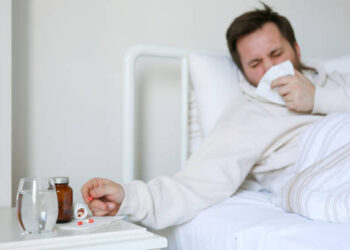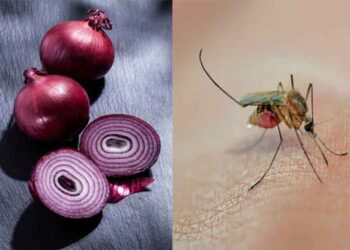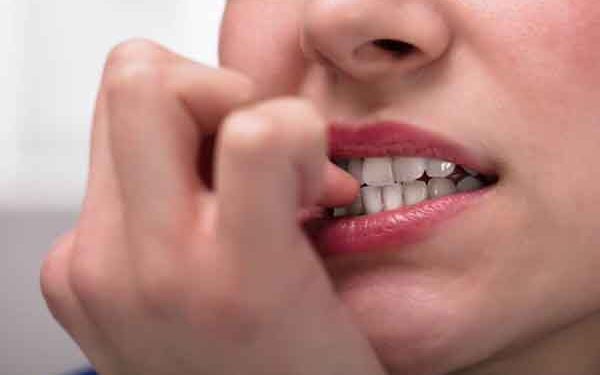
Nail biting seems normal until you see how this habit makes your fingers unsightly and unattractive. The habit of nail biting can increase one’s risk of several infections like typhoid enteritis, worm infestations, cholera, and other food and water-borne diseases. Nailbiting also makes one look childish and unprofessional in a professional setting, especially if you find yourself unable to take your hands off your mouth when you have the urge to do so.
Nail biting or onychophagia may be seen as an obsessive disorder if it begins to affect one’s daily activities. However, most people who bite their nails as a habit are still able to go about their normal daily activities, but the effects of nailbiting may be demonstrated in the appearance of the fingers and fingernails.
Nail-biting is a common habit that generally tends to begin in childhood. It is an example of what psychologists call body-focused repetitive behavior (BFRB).
There isn’t much data on the number of people who exhibit this behavior but existing data suggests that 30-60% of children have onychophagia at the age of 10, some will stop, while others will carry on into adulthood, finding it a distressing habit. One of the reasons we don’t have more accurate data is that these behaviors are often hidden, Clare Mackay said.
Clare Mackay is a professor of imaging neuroscience at the University of Oxford who has spent over 30 years researching various neurological and psychiatric disorders including nail-biting and trichotillomania (hair pulling), shared with inews.co.uk how she has experienced both of these behaviors growing up. Everyone engages in some nail-biting, skin-picking, and hair-pulling, but it becomes a disorder when it gets uncontrollable and causes significant distress.
Growing up, I too struggled with nail-biting. While Clare Mackay shared some tips that helped her overcome her habitual behavior of nail-biting, I could relate to some of the interventions she tried and which worked for her.
Whether you want to stop your compulsive nail-biting behavior or you want to help someone stop, this post will explore simple home hacks to overcome the urge for habitual nail-biting.
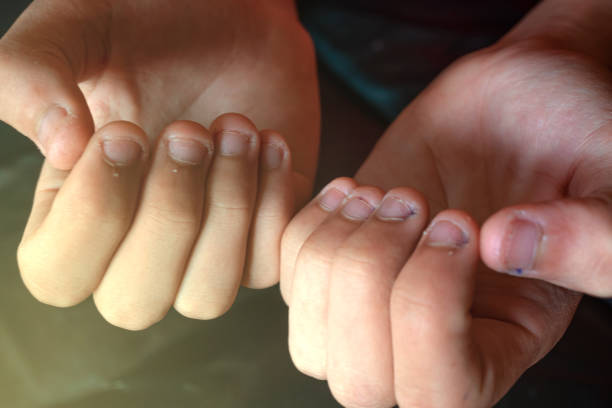
What Makes People Bite Their Nails Habitually?
While the exact cause of nail biting is not known, psychologists believe that it can be triggered by emotional or psychological distress. For Mackay, she considers it a self-soothing behavior when in a state of distress. This is similar to my own experiences with nail biting. I often bite my nails when I am under some mental stress when doing math or solving a problem.
Nail biting often starts in early childhood. In some people, it starts as finger-sucking with nail-biting, which is often a response to hunger and a need to soothe oneself when food is unavailable. This may progress into later childhood and adulthood where it may be triggered by similar stressors summarized as emotional and psychological distress.
The more you bite your nails, the more you are likely to keep biting them. Aside from the relief it can give you when you are stressed or anxious, biting your nails can keep you busy when you are idle and lonely, star-gazing in a trance-like state.
In addition, biting your nails can give them ragged edges which can give you a feeling of discomfort or a need to bite them again until the ragged edge is removed. This ultimately leads to you intentionally ripping off tiny sheets of nail material until you can see the bare nail bed tissue without an overlying nail.
Contrary to the misconception that nail-biting is a form of self-harm, Mackay argues that it is not, noting that individuals who bite their nails have no intention or desire to cause deliberate self-harm, but mutilating the fingers is just an unfortunate consequence of nail biting. With determination, you can stop biting your nails and keep neater fingers.
Steps to Overcoming Nail Biting
Overcoming the habit of biting your nails may follow the following systematic steps.
1. Identify the triggers
Granted, nail biting may be triggered by emotional and psychological distress but these situations are different for every individual who bites their nails habitually. You need to identify the situations that trigger you to bite your nails as a necessary first step in overcome onychophagia.
Examples of such triggers include physical and emotional stress, anxiety, hunger, tasking mental activity like tests and exams, or having uncomfortably long nails.
2. Understand the consequences
Trivializing nail-biting as a normal behavior can make it more difficult to stop the habit, as you don’t see a need to. Nail biting has a lot of consequences, from self-induced mutilation of your fingers to increased risk of infections, social effects, and possible loss of self-esteem at the awareness of the unaesthetic nature of one’s nails.
3. Seek help
The earlier two steps help you identify the problem and its social and personal consequences. Now that you know what triggers your nail-biting behavior and what could result from this habit, seeking help or finding solutions is the next thing to do.
Several anti-nail-biting solutions exist. These include home hacks, deterrent chemicals, and hypnotherapy as you’ll see in the next sections.
Home Hacks to Stop Nail Biting
Several hacks have been proposed by different people as possible solutions to stop biting your nails. I will be sharing some home hacks for overcoming nail-biting, in no particular order, from personal or other people’s experiences. This will be helpful when applied to yourself or used for someone else you want to help stop the habit.
1. Use of deterrents
Deterrents are chemical and biological substances that have an unpleasant flavor and/or taste when applied to the fingers and nails. Examples include neem extracts, bitter leaf, and bitter gourd paste, garlic oil/extract, or nail-biting deterrent polish. These substances are non-toxic when ingested but they can help deter one from biting one’s nails when one attempts to put one’s hands in the mouth.
For the biological extracts above, simply create a paste or oil by blending, pounding, or squeezing, and apply the residue to your fingernails and end parts of your fingers with the aid of a soaked cotton ball or directly with your hand.
Nail-biting deterrent polish offers an already-made solution to apply to your nail. This nail polish comes in different brands but I personally know of Mavala nail-biting deterrent polish. The chemical often used for this polish has an unpleasant taste that helps deter one from biting one’s nails. The polish also adds a glossy feel to your nails making them look more attractive.
Mackay shared that the use of bitter-tasting chemicals did not help so much in preventing nail-biting as she simply got used to the unpleasant taste after a while.
2. Finger coverings
A simple hack to avoid biting your nails would be to cover them. This creates a physical barrier over your nails. Physical coverings include the use of adhesive bandages or plaster over the fingernails, hand gloves, etc.
If you are conscious about stopping this habit, feeling a bandage, plaster, or glove in your mouth should instantly remind you of your commitment to discontinue this habit. Also, these coverings may feel dirty or unhygienic to put in your mouth.
3. Regular manicure
Nail biting can be a sign that you don’t care about the aesthetics of your nails. Maybe paying a little extra attention to your nails would motivate you to keep them neat and beautiful. The American Academy of Dermatology Association also emphasized the effectiveness of regular manicures in helping overcome the urge for nail biting.[1]How to stop biting your nails – American Academy of Dermatology
For example, someone has testified that wearing artificial nails for no less than 21 days helps overcome the urge to bite her nails. Of course, artificial nails are not easy to bite. Having such a barrier against the habit for a period of up to 21 days or more could help you break the habit.
4. Use of nail clippers
This is a hack I found personally helpful for stopping my nail-biting behavior. This has helped me maintain clean and well-rounded nails, instead of ultra-short and seemingly ‘lepromatous’ nails. Several sources have also confirmed that keeping your nails short and clean can help overcome the urge to bite your nails.
Having rough or irregular nail edges can stimulate you to remove the loose edges with your teeth. This might be a compulsive behavior in some people. Straightening the edges of your nails with a pair of nail clippers helps you resist the urge to bite them as you might not easily find a nail fiber to grasp with your teeth.
Whenever you feel like biting your nails, pick up your nail clippers and trim your nails down. The urge to bite your nails might be a hidden sign that your brain feels your nails are getting too long, particularly if you naturally don’t like long nails. Clean and short nails can also motivate you to stop your nail-biting habit the same way having a regular manicure does.
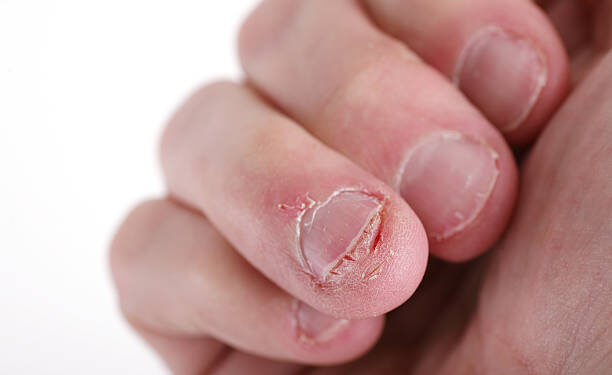
Final Words
The above tips and hacks can help you overcome the habit of biting your nails, particularly when you are stressed or anxious. You can also recommend them to other people who might need help stopping the habit.
Without the full determination to quit nail biting, it can seem like an impossible task but if I could stop after so long, anyone can stop biting their nails compulsively. It is also important to identify known triggers and manage them.
One way you can manage triggers like stress, anxiety, or distress, suggested by Mackay, is by hypnosis. She noted how therapist-administered or self-hypnosis helped her get over her habit of nail-biting as it helped her deal with and relieve emotional and psychological distress that could trigger the urge for nail-biting.
Finally, if you or someone you know has another home hack or general method of overcoming nail biting not discussed in this post, kindly drop it in the comment section. And if you have any questions relating to any aspect of this article, I also anticipate your questions in the comment section below.
